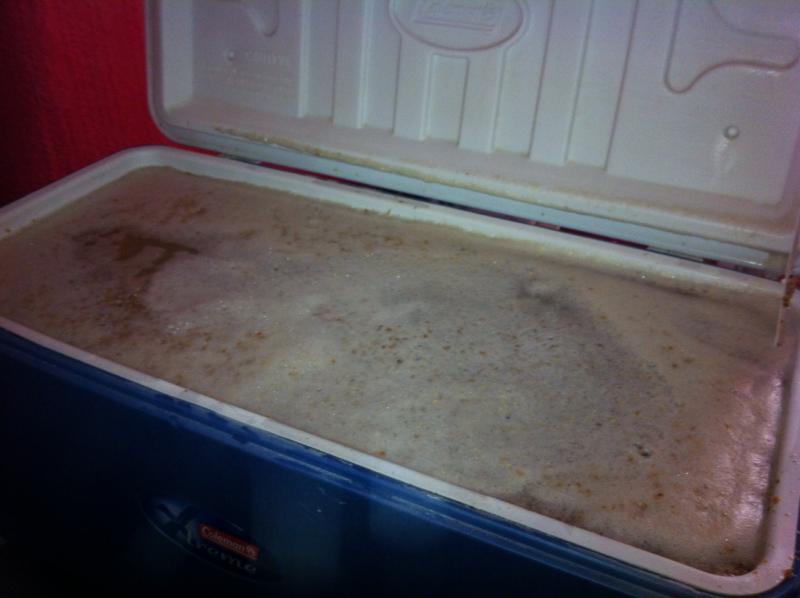So I'm working on a 20% + ABV all grains with absolutely no sugar added. I was inspired by the beer called caused of death. I recently made a clone of DFH120 IPA In which I have added a lot of sugar and want to explore the other route to make a massively strong beer without resorting to freeze it like Brewdog does.
I d'like to make it an IPA.
Here the planned recipe:
35.88 lbs Marris otter
2.6 lbs Crystal 60L
2.6 lbs Carapils
Hops:
3oz of Apollo 19% 43 IBU at 60'
3oz Summit 17.5 30 IBU at 30'
1oz cascade 6% 2 IBU at 15'
1oz cascade 6% 2 IBU at 10'
1oz cascade 6% 1 IBU at 5'
2oz cascade 6% at Flame out.
Yeast:
Gallons starter of WLP 001
Gallon starter of WLP 099
Mash 60" with 15.4 gallons at 170F
Sparge 4.8 gallons at 172
Boil volume 14.03gallons
Final volume 5.8 gallons.
I estimate that the boil will last 3 hours in 2 kettles then combine them into one for the final boil down for about another 1 1/2h.
OG 1.194 est
FG 1.031est
I have ordered an oxygen set up to aerate the yeast before pitching.
I will start the fermentation with only 2 gallons of the wort, the rest will be pasteurised and store in air tight container. I will then add regularly more wort until I reach the full volume. As not to stress the yeast and hopefully get a nice attenuation.
I reckon that i will keep it 2 months in the primary then until spring next year to bottle it.
I would appreciate any critiques or suggestion of my recipe.
Thanks.
I d'like to make it an IPA.
Here the planned recipe:
35.88 lbs Marris otter
2.6 lbs Crystal 60L
2.6 lbs Carapils
Hops:
3oz of Apollo 19% 43 IBU at 60'
3oz Summit 17.5 30 IBU at 30'
1oz cascade 6% 2 IBU at 15'
1oz cascade 6% 2 IBU at 10'
1oz cascade 6% 1 IBU at 5'
2oz cascade 6% at Flame out.
Yeast:
Gallons starter of WLP 001
Gallon starter of WLP 099
Mash 60" with 15.4 gallons at 170F
Sparge 4.8 gallons at 172
Boil volume 14.03gallons
Final volume 5.8 gallons.
I estimate that the boil will last 3 hours in 2 kettles then combine them into one for the final boil down for about another 1 1/2h.
OG 1.194 est
FG 1.031est
I have ordered an oxygen set up to aerate the yeast before pitching.
I will start the fermentation with only 2 gallons of the wort, the rest will be pasteurised and store in air tight container. I will then add regularly more wort until I reach the full volume. As not to stress the yeast and hopefully get a nice attenuation.
I reckon that i will keep it 2 months in the primary then until spring next year to bottle it.
I would appreciate any critiques or suggestion of my recipe.
Thanks.



